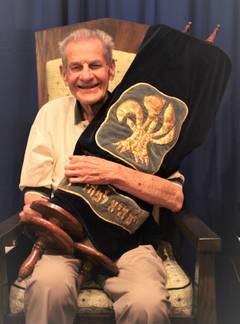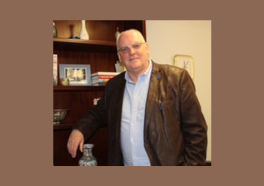- About Us
- Connect
- Learn
- Jewish Life
- Music
- Events
- Give
- Join Us
Broken
09/30/2016 03:19:40 PM
Rabbi Jennifer Jaech
| Author | |
| Date Added | |
| Automatically create summary | |
| Summary |
At my age, I should have known better. One stifling morning last May, I decided to go for a run on a wooded trail near my house. I wanted to run despite the heat, and despite my knee that had been a little swollen. I thought briefly about taking my phone, but I didn’t want it to slip out of my sweaty hand. Besides, I would be on a trail usually well-populated by dog walkers.
It turns out that there were no other people in the woods that morning. Recent rainfalls had created puddles of water, which are hospitable breeding ground for mosquitoes. They buzzed around my face, impervious to the repellent I had sprayed on myself. The mosquitoes and the sticky heat explained why I had the trails to myself.
About fifteen minutes into my run I started to feel pain in my knee. Then the pain radiated through my entire leg. I decided that I would stop running and just walk quickly. But after two minutes it hurt to walk quickly. Then it hurt to walk at all. I stopped to consider my options. No sound but the whine of mosquitoes and the trickle of a nearby stream. I was all alone.
The Torah tells the story of Jacob left alone by a stream. Jacob was on his way home to meet his estranged brother Esau after an absence of twenty years. The last time the twin brothers lived in the same household, Jacob deceived their blind father Isaac into giving him the blessing intended for Esau. Once uttered, Isaac’s blessing could not be revoked. In revenge for the theft of his blessing, Esau vowed to kill Jacob. So Jacob had to flee.
The night before their reunion, all alone by the stream, Jacob has a strange encounter. A man appears and wrestles with him all night. During their struggle, the man wrenches Jacob’s hip, but Jacob refuses to let him go. Instead Jacob demands that the stranger offer him a blessing. “What is your name?” asked the stranger. “Jacob,” he replies. “Your name shall no longer be Jacob but Israel,” said the man, “for you have striven with beings divine and human and have prevailed.” As the sun rises, Jacob leaves that place, limping.[1]
Back on the trail, I knew I had to limp out of the woods. The thought of providing a stationary target for ravenous mosquitoes urged me on and, after all, my other leg still worked. So I willed myself to put that other leg to work, and limped slowly along, clenching my teeth and batting away mosquitoes, until I was out of the woods.
An MRI revealed the trouble. My medial meniscus, a cushioning crescent of cartilage in my knee, is torn away at its root. At my age, there is no easy fix. I am broken.
Living with this injury is not a big deal. I only tell you about it because it led to an awareness of the other, more serious ways in which I am broken.
In the early days of my injury I moved with much more difficulty than I do now. As I limped slowly up the stairs, I recalled with shame how, before my injury, impatience would well up in me when I got stuck on a stairway behind an elderly person. With my injured knee, I struggled to keep up with people who walked faster than I could, and remembered, with shame, how I had often resented having to slow my steps to accommodate another who didn’t walk as quickly as I did. I berated myself: How could I have been so impatient with others?
In the early days of my injury, many kind people in our congregation noticed my knee brace or my limp and asked me what was wrong. Some told me about their own injuries and how they either had had surgery, or had learned to cope. Often, I was surprised to hear that they were living with chronic injuries. Their injuries were not readily apparent. Or, more likely, I hadn’t paid close enough attention. I had been too busy rushing from one place to another.
It took my torn meniscus to teach me that my soul is broken too, in ways far more serious than my physical injury.
This night of Kol Nidre reminds all of us of our brokenness. We are too weak to keep the vows that we make; we declare our word null and void. We recite the Al Cheit, a long list of our collective wrongdoing over the past year. On this night, we are to consider ourselves fragile, broken creatures, part of a fragile, broken humanity.
Each of us is broken. Not every person in this sanctuary has a physical injury, but we all have been wounded emotionally. We have all suffered loss. We have all carried burdens. No heart can leave this world untouched by pain. Often the most brutal wounds are those we hold in our hearts, those that elude detection by X-Rays or MRIs. These are the injuries we may be the least willing to reveal. Even in the safety of our sacred community, we wish to keep up the illusion of wholeness.
And that’s only an illusion. Leonard Cohen, of blessed memory, was a visionary artist, songwriter and poet. Growing up in an Orthodox Jewish household, he was told at an early age that he was a descendant of Aaron, the High Priest, the original koheyn, the one who brought perfect offerings to God in the Israelite sanctuary. Leonard Cohen knew the truth about our brokenness. He wrote:
Ring the bells that still can ring
Forget your perfect offering
There is a crack, a crack in everything
That’s how the light gets in.
There is a crack in everything…that’s how the light gets in.
In the Torah’s story, Jacob limps away from the place where he has just struggled with the mysterious man. Generations of Israel have memorialized Jacob’s injury. It provides an explanation for the prohibition in Jewish law against eating cuts of meat that come from the hind part of an animal. Jacob’s brokenness, born out of struggle, becomes something sacred.
We can turn our own brokenness into something sacred. We may think that because we are broken, we are not in the position to help others. But, in fact, it is because we are broken that we can. Our brokenness lets the light get in.
No one can help a person battling drug or alcohol addiction better than another who faces the same grinding struggle to remain sober. No one can help a veteran afflicted with memories of their brothers in arms wounded or killed on the battlefield better than another who has also been broken by a terrible war. And no one can help a bereaved parent better than another who has endured the profound, bottomless grief of losing a child.
To become “Healers of the broken-hearted and binders of their wounds” is sacred work. And it is work that only the broken can do. For “There is nothing as whole as a broken heart,” taught the Kotzker Rebbe.
this night, we remember our frailties, the plain fact of our brokenness. We are spiritual descendants of Jacob, wounded by his struggle, yet limping forward. May we dedicate our own brokenness to a sacred purpose. May our wounds make us more compassionate, more forgiving, more whole.
[1] See Genesis 27 and 32
Thu, April 24 2025
26 Nisan 5785
Temple israel Happenings
-
Thursday ,
AprApril 24 , 2025 County-Wide Yom HaShoah Commemoration
County-Wide Yom HaShoah Commemoration
Thursday, Apr 24th 12:00pm to 1:00pm
County-Wide Yom HaShoah Commemoration at the Garden of Remembrance, 119 Martine Avenue in White Plains. Temple Israel's rescued Holocaust Torah scroll will be part of the procession of scrolls from Westchester county, and Cantor Hayley Kobilinsky will participate in the program. -
Tuesday ,
AprApril 29 , 2025 Sisterhood Book Group
Sisterhood Book Group
Tuesday, Apr 29th 6:00pm to 8:30pm
NEW DATE! We will be discussing the book "The Frederick Sisters Are Living the Dream" by Jeannie Zusy in person at a congregants' home. The author will be joining us for the discussion. We will have a Pot Luck Dinner to start -
Wednesday ,
AprApril 30 , 2025 Holocaust Education Today: Challenges and Limits by Dr. Werner Steger
Holocaust Education Today: Challenges and Limits by Dr. Werner Steger
Wednesday, Apr 30th 6:00pm to 7:30pm
Dr. Steger serves as the endowed chair for the Greenspan-Handel Trust for Holocaust and Genocide Studies. -
Saturday ,
MayMay 3 , 2025 Midnight Run
Midnight Run
Shabbat, May 3rd 1:00pm to 4:00pm
Volunteers needed. The Midnight Run is a volunteer organization whose goal is to come together as a community in order to feed the homeless of New York City. They coordinate more than 1,000 relief missions per year with volunteers from churches, synagogues, schools and other civic groups to deliver food, clothing, blankets and personal care items to the homeless poor on the streets of New York City.
Events
Today's Calendar
| Yom HaShoah |
: 12:00pm |
: 7:00pm |
Friday Night
: 7:00pm |
Shabbat Day
: 9:30am |
Upcoming Programs & Events
Apr 24 |
Apr 24 |
Apr 29 |
Apr 30 |
May 2 |
This week's Torah portion is Parashat Sh'mini
| Shabbat, Apr 26 |
Yom HaShoah
| Thursday, Apr 24 |




